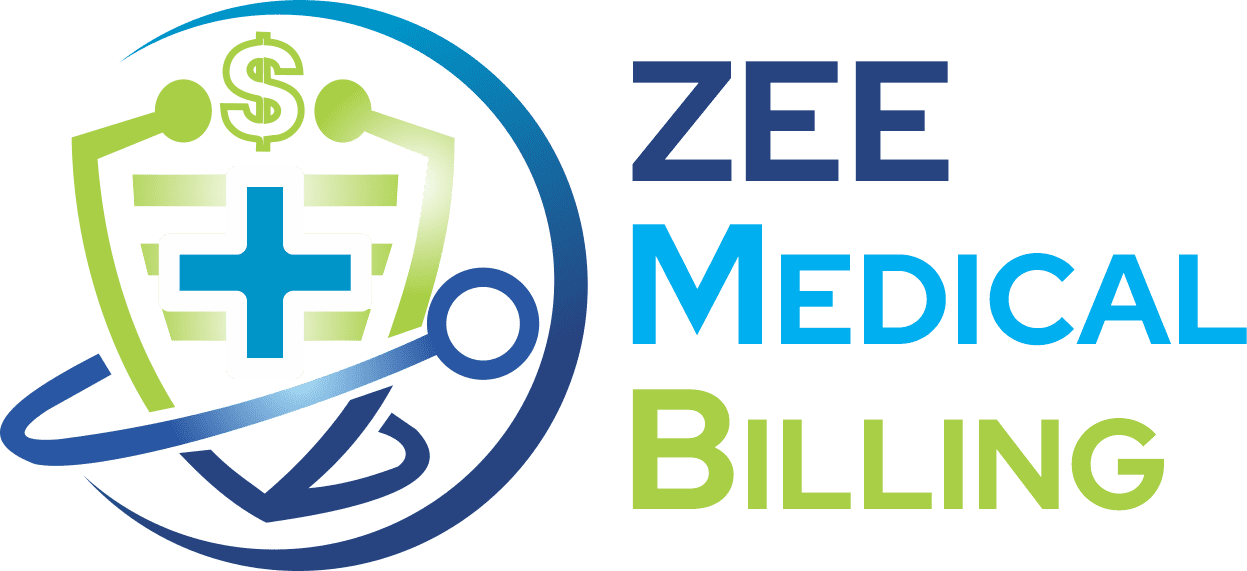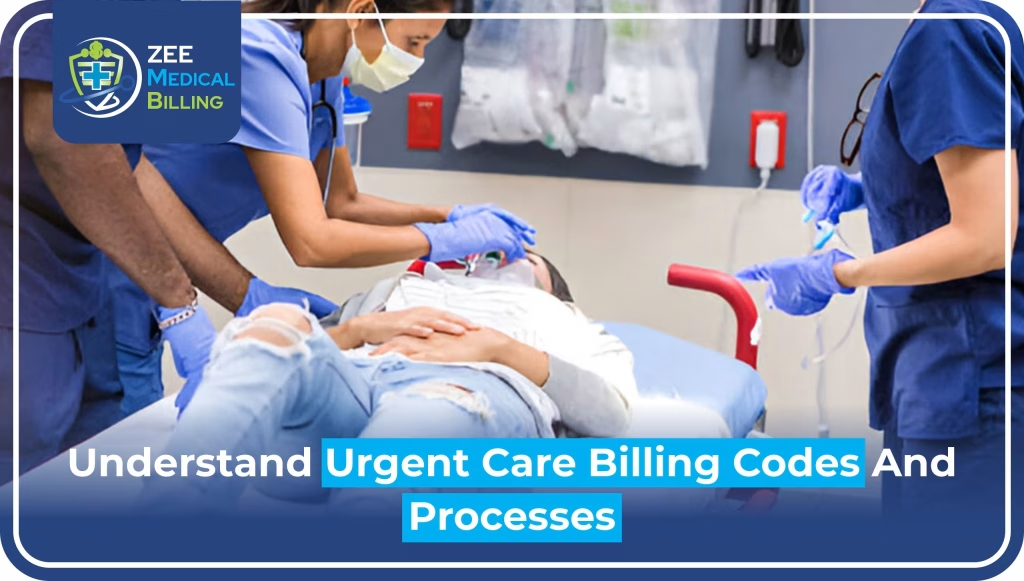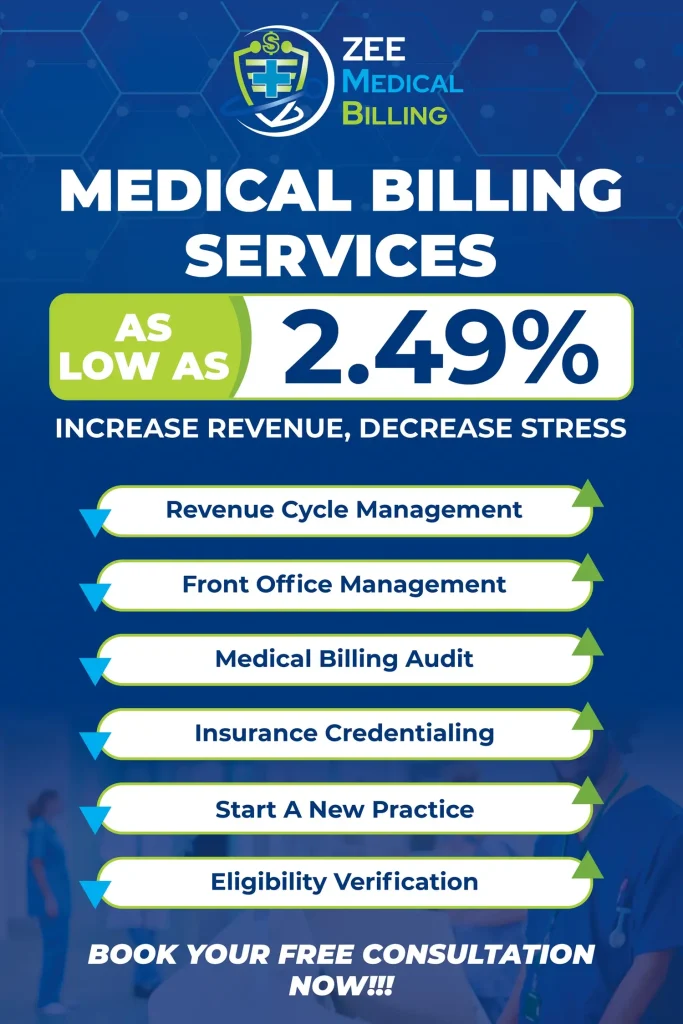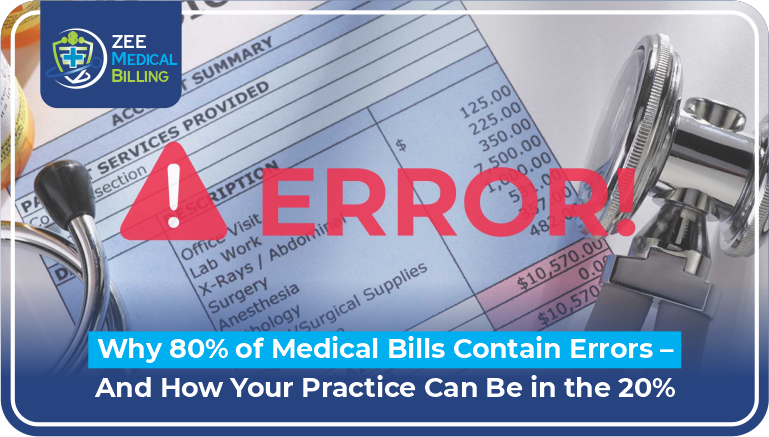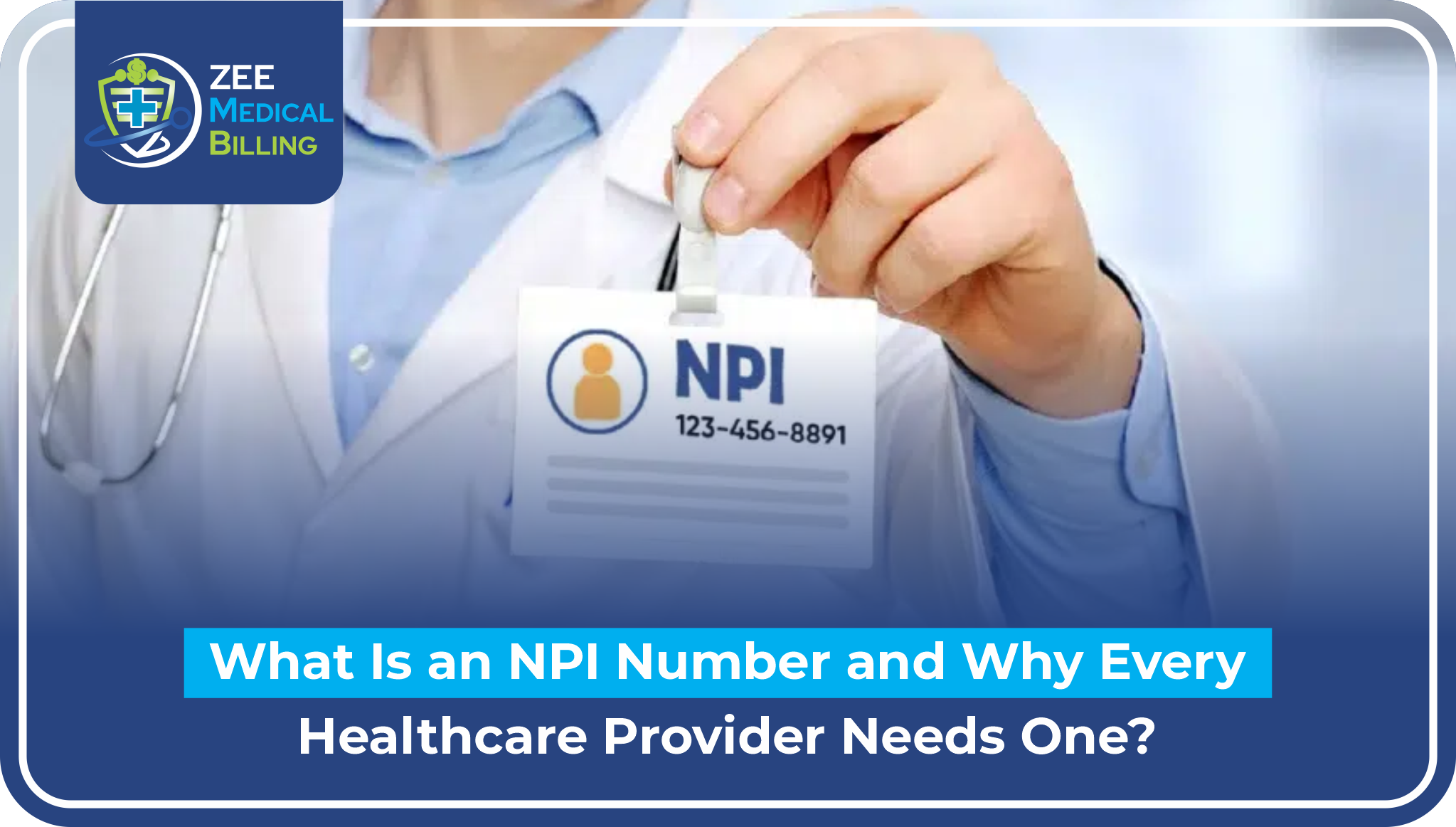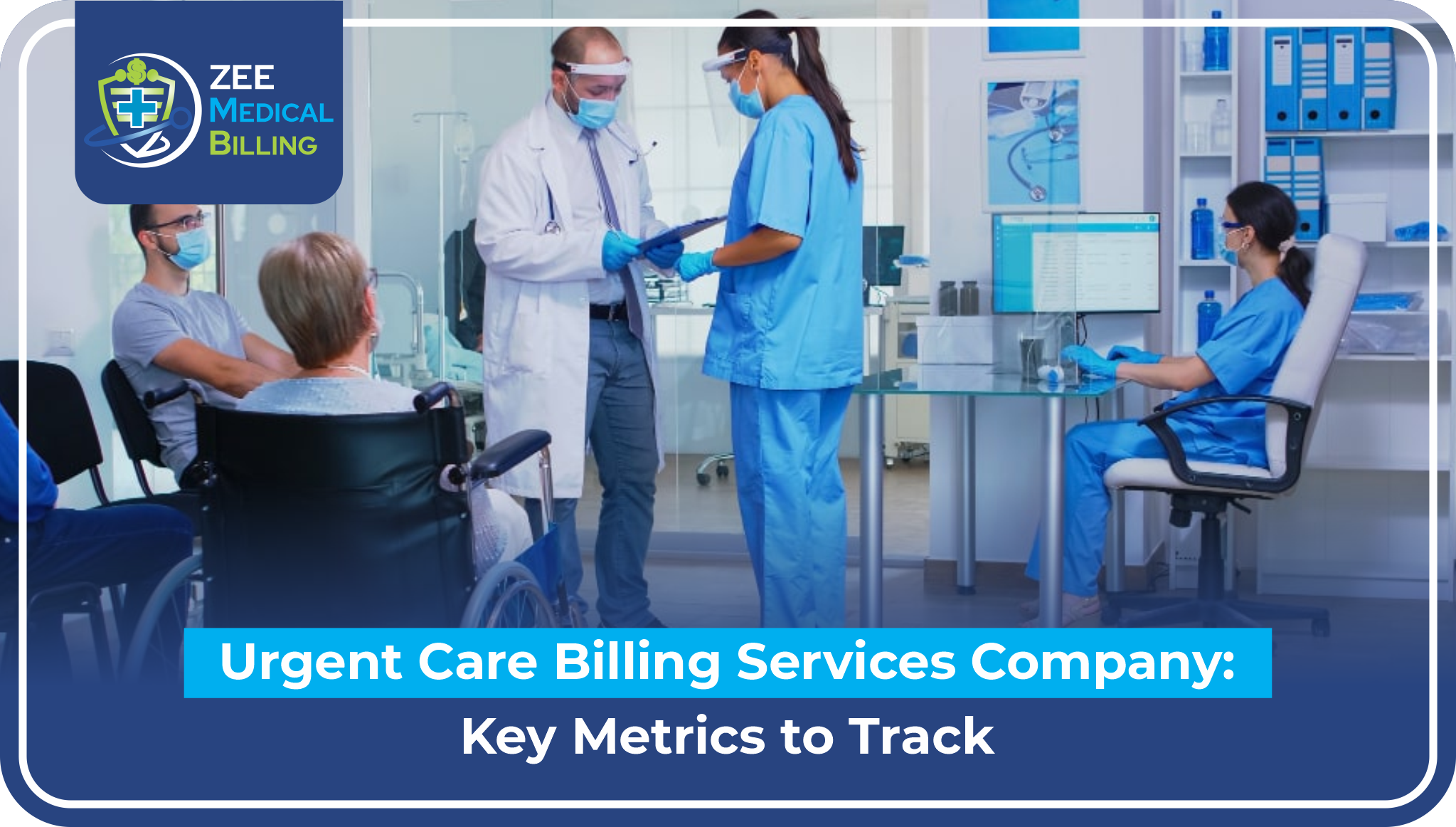Urgent care centres have become a go-to solution for patients who need fast medical attention but don’t want to wait hours in the emergency room. While the clinical aspect of urgent care is straightforward, the billing process for urgent care is far from simple. From coding accuracy to insurance claim submission, urgent care billing requires accuracy, compliance, and effectiveness.
Let’s have a detailed look at the urgent care billing codes and processes.
What is Urgent Care Billing?
Urgent care billing is the process of coding, then submitting, and managing claims for medical services provided at urgent care centers. These centers handle non-life-threatening conditions, such as the flu, bone fractures, infections, or minor injuries.
Also Read: How Urgent Care Billing Works With and Without Insurance?
The urgent billing department ensures that all services are recorded accordingly using the correct billing codes, which directly impact reimbursement from insurance companies. Without accurate billing, clinics risk claim denials, delayed payments, or revenue losses.
The Role of Billing Codes in Urgent Care
Like any healthcare service, the urgent care relies on billing codes (CPT, ICD-10, and HCPCS codes) to describe patient visits and treatments.
- CPT Codes: Identify the medical procedures or services provided, e.g., X-rays, lab tests.
- ICD-10 Codes: Indicate the patient’s diagnosis, e.g., flu, sprained ankle.
- HCPCS Codes: Cover supplies, injections, and certain medical equipment.
Accurate coding is crucial because even small mistakes can lead to denied claims. Many clinics partner with an urgent care billing company or invest in urgent care billing software to avoid errors and streamline claims management.
Common Challenges in Urgent Care Billing
Urgent care centres face some challenges, including:
- High patient volume: Quick turnaround requires quick but accurate billing.
- Insurance variations: Coverage differs between payers and states.
- Coding complexity: Similar services may have different codes based on time and complexity.
- Patient payments: Patients often ask, “Does urgent care bill you later?” This depends on their insurance and the clinic’s policy.
Does Urgent Care Bill You Later?
The most commonly asked question is whether urgent care centers send a bill after the visit. The answer depends:
- Without Insurance: Most centers require upfront payment if you don’t have coverage. Some may allow partial payment and bill the rest later.
- With Insurance: If you have insurance, urgent care typically collects a copay during the visit and then bills you later for any remaining balance after insurance processes the claim.
- Can Urgent Care Bill You Later? Yes, but policies vary by clinic. It’s always best to ask before treatment.
So, if you’re searching “does urgent care bill you later without insurance” or “does urgent care bill you later with insurance,” the short answer is it depends on the center’s policy and your insurance coverage.
How Billing Services and Companies Help Urgent Care Centers?
Managing the billing cycle in-house can be overwhelming; that is why many clinics have become professional urgent care billing services. These companies specialize in:
- Claim submission & follow-up
- Denial management
- Patient invoicing & collections
- Compliance with pay regulations
- Integrating urgent care billing solutions and billing software for efficiency
By outsourcing urgent care medical billing, companies and providers reduce errors, speed up reimbursement, and focus more on patient care instead of paperwork.
The Role of Billing Software in Urgent Care
Modern urgent care billing software automates much of the process. Features include:
- Automated coding suggestions
- Real-time eligibility checks
- Claim scrubbing to reduce denials
- Easy integration with Electronic Health Records (EHR)
This technology is especially helpful for high-volume centers in busy areas, such as Billings’ urgent care facilities.
Also Read: ZMB Urgent Care Billing: Pick Wisely or Pay the Price
Benefits of Professional Urgent Care Billing Solutions
Partnering with an urgent care billing services company provides several advantages:
- Higher claim acceptance rates
- Faster reimbursements
- Reduced administrative burden
- Better patient payment tracking
- Improved compliance with coding and insurance rules
For many urgent care centers, outsourcing isn’t just a convenience; it’s a necessity to stay profitable.
FAQs
Q1: What are urgent care billing codes?
Urgent care billing codes include CPT, ICD-10, and HCPCS codes used to describe services, diagnoses, and procedures for insurance reimbursement.
Q2: Can urgent care bill me later if I don’t have insurance?
Some centers may allow partial payment, and most require upfront payment without insurance.
Q3: What if I can’t pay at urgent care?
Many clinics offer payment plans or financial assistance. Always ask the billing department.
Q4: Why do urgent care centers use billing companies?
Because billing is a complicated process, outsourcing helps minimize errors, improve compliance, and make quicker payments.
Q5: What’s the difference between billing software and a billing company?
Billing software is a tool for managing claims in-house; on the other hand, a billing company provides full-service support, often including human follow-ups and patient billing.
Conclusion
The world of urgent care billing is more complex than most patients and even some providers know that. From urgent care billing codes to insurance claim follow-ups, every detail matters for correct reimbursement. Whether handled in-house with urgent care billing software or outsourced to an experienced urgent care billing company, having the right billing solution is important for financial health.

















